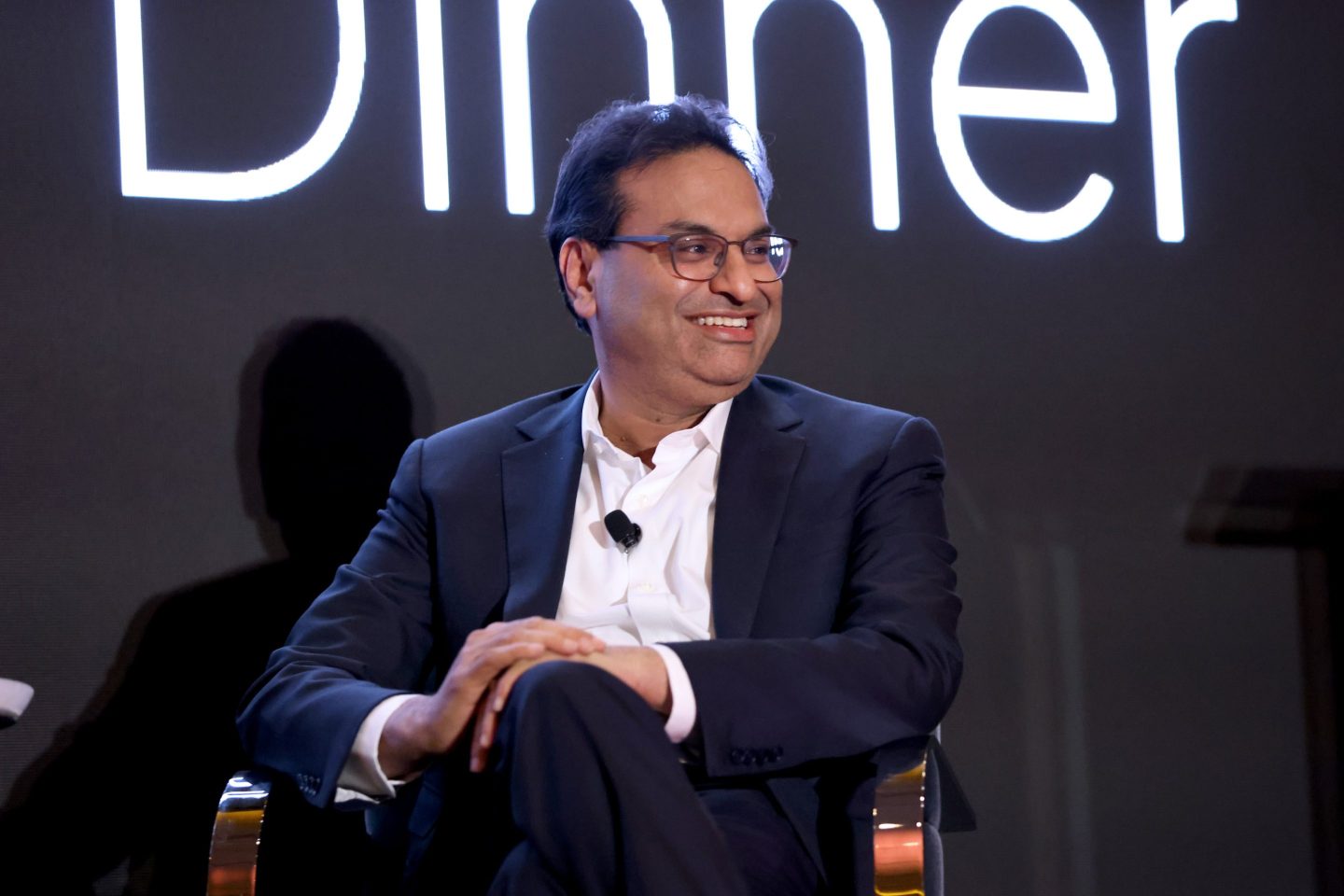Good morning.
How do you train to be CEO? Laxman Narasimhan, CEO of Starbucks since last October, took an unusual crash course. Working with his predecessor Howard Schultz and board chair Mellody Hobson, he designed a six-month “immersion” to learn life as a barista.
“The idea was to really immerse myself in the business, understand the culture, understand it from a partner’s lens, and also get really good at coffee, which I love drinking…I became a certified barista, working in stores across the U.S., working in stores in Europe, in Mexico, as well as in China and Japan. And it gave me a real lens into what it meant to be a partner at the company.”
“Somebody asked me this question, ‘Why was your training six months long?’ And I said: ‘That’s a very Western way of phrasing the question, right? Because if you were Eastern, you would ask the question: why was it only six months?’ I learned a lot. I think it was a really good push from both Howard and Mellody that I would do that.”
Narasimhan told Michal Lev-Ram and me on this week’s Leadership Next podcast that what he learned from his immersion that Starbucks’ purpose, ultimately, is to provide human connection. I pushed Narasimhan on the connection point, having became a Starbucks regular during the pandemic because of convenience. I can order my drink in advance and have it waiting for me when I arrive. But that convenience has also given the stores more of the feel of a factory, and less of a place for human connection.
“The pandemic did, in fact, have quite an impact on consumers, and an impact on Starbucks. We’re still working our way through it…We need to do better. Having said that, that moment of interaction, even in a drive-thru, where you are speaking with a barista, is a moment of connection.”
We asked Narasimhan how he felt about his business in China, at a time of tension between China and the West. His response:
“China is ten percent of our business and growing. We are opening a store there every nine hours…We have a real belief in the long-term potential of our business in China. We believe we are building bridges, over coffee.”
If you are wondering, Narasimhan’s coffee drink of choice is a Doppio Espresso Macchiato. And he doesn’t drink after 2:00 p.m. You can listen to the full podcast on Apple or Spotify. Other news below.

Alan Murray
@alansmurray
alan.murray@fortune.com
TOP NEWS
Avoiding a race to the bottom
Mira Murati, OpenAI’s chief technology officer, is worried of a “race to the bottom on safety” as Silicon Valley rushes to embrace AI. “Each of us has to commit not to do that and resist the pressures,” Murati tells Fortune’s Kylie Robison and Michal Lev-Ram. The OpenAI executive, ranked No. 57 on Fortune’s 2023 Most Powerful Women list, admits that ChatGPT’s success caught the company by surprise, noting its preparations were “completely irrelevant” after the chatbot’s viral success. Fortune
Slack time
Salesforce is forcing employees at Slack to stop working for a week so they can take courses on the company’s online learning platform. Salesforce wants employees to have completed about 40 hours of training on the platform, and many Slack workers have yet to hit the target. Still, Slack employees are finding workarounds, either writing code that automates taking the course, or sharing lists of the easiest modules to complete. Fortune
Exxon ready to spend big
Exxon Mobil is close to buying Pioneer Natural Resources in a deal that could be worth as much as $60 billion. The purchase, if it goes ahead, would be the largest takeover in 2023 thus far. Pioneer, ranked No. 164 on the Fortune 500, holds one of the largest collections of fertile oil land in the U.S., and is one of the country’s largest shale companies. The Wall Street Journal
AROUND THE WATERCOOLER
GM’s Mary Barra is charging ahead on EVs and navigating the UAW auto strike. It’s a valuable lesson in playing the long game by Alyson Shontell
Most bosses think you’ll be back in the office 5 days a week within 3 years by Orianna Rosa Royle
London Stock Exchange CEO says the U.K. has itself to blame for not attracting senior talent due to lower pay: ‘We’ve hamstrung ourselves’ by Prarthana Prakash
Commentary: America has a second, thriving auto industry–and a prolonged UAW strike could threaten it too by Mike Spagnola
Janet Yellen and the man who invented the term ‘bond vigilantes’ disagree about what’s happening in the Treasury market right now by Will Daniel
This edition of CEO Daily was curated by Nicholas Gordon.
This is the web version of CEO Daily, a newsletter of must-read insights from Fortune CEO Alan Murray. Sign up to get it delivered free to your inbox.














